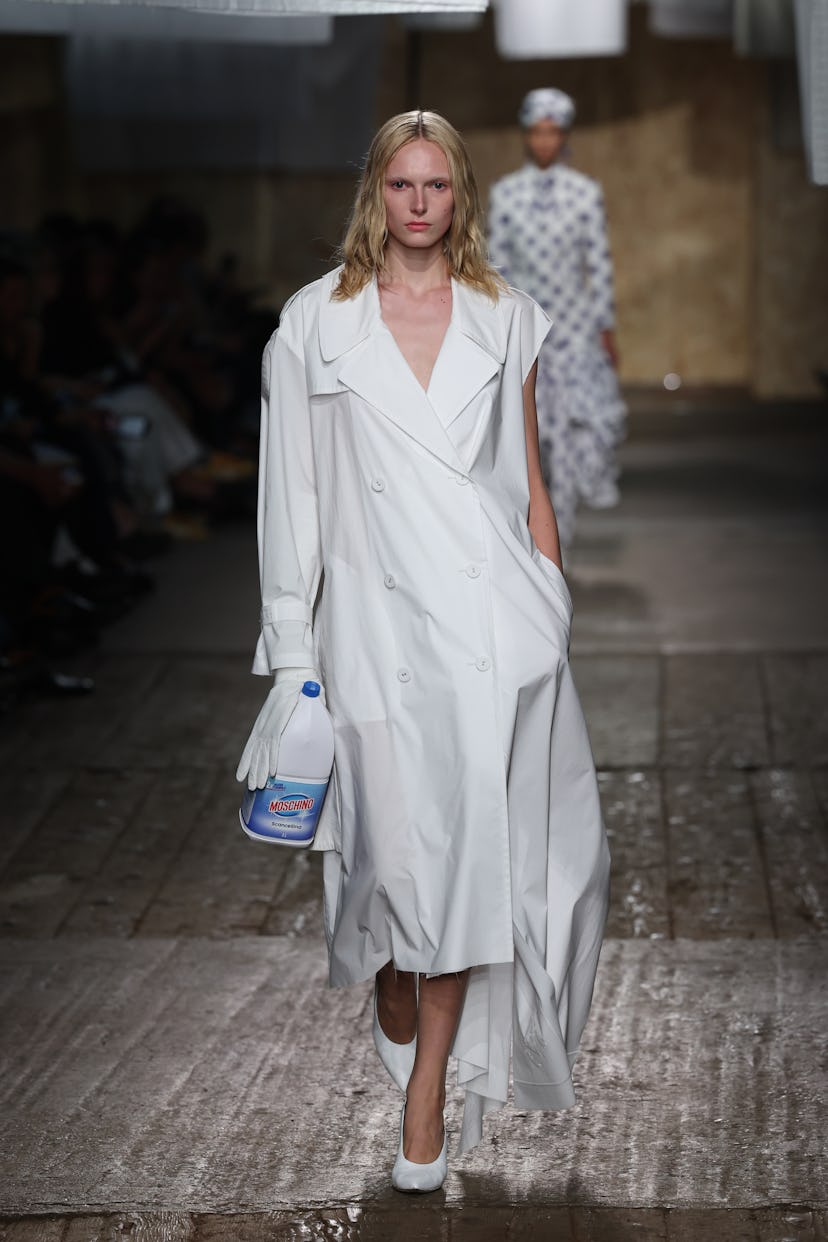Moschino Spring 2025 Is All About Gentle Irony

Moschino has always been a brand that’s full of life and raw humor, even in its simplest form. Last season, creative director Adrian Appiolaza presented his first collection for the house, toning it down from the madcap, eccentric, maximalist era of former creative director Jeremy Scott to a look more rooted in house archives. The brand’s spring 2025 collection took a similar approach in dialing down the drama a notch, with a distinct and distilled approach to gentle irony and wit.
The collection opened with five white looks, all made out of what looked like the humble bedsheet—but contorted, distorted, and draped into dresses, long skirts, and matching ruffled tops (plus one asymmetric trench coat). To top it all off, one model carried a leather silver tea pot bag while another waltzed down the catwalk with a Moschino logo bag that was shaped like a bottle of laundry detergent. There is no other brand so steeped in novelty bags as Moschino, and it was great to see more playful versions back on the runway after a few seasons without them.
Everyday absurdities were woven into the accessories, like headpieces, one made out of scraps of buttons and rocks. Suits came printed with messages like “What’s up?” or T-shirts with “wear, care, dare.” (The British art director and founder of i-D magazine, Terry Jones, collaborated with Moschino on the wordplay graphics.) Elsewhere, the suit was deconstructed into a skirt and matching strapless top, with a cowboy hat and polka-dot opera gloves to match.
Highlights of the collection included blink-and-you’ll-miss-them quirks, like labels sewn on the front of pieces near the neckline and entire dresses sewn on the backs of all-black, basic garments. Polka dots, long a signature of the brand, were reinterpreted on suiting, flowing maxi dresses, fringed gowns, and headscarves. Last season, Appiolaza spoke about referencing the Moschino archives, and it’s clear he had a similar process for spring 2025. Looking through some of the striped skirts, pearl necklace-embellished t-shirts, and oversize slogan tees, it was easy to see different versions of Franco Moschino’s work reinterpreted.
There was a lot of play on proportions, too, with Appiolaza weaving in pieces like extremely oversize patchwork duvet jackets with chunky, double-breasted suit jackets that were intentionally baggy. On the opposite end of the spectrum, there were slinky, body-hugging sweater dresses with matching turbans.
The show notes spoke of “like-minded characters” and “shared identities,” an exploration of “communities of dress–cultures and subcultures, where dressing alike is a mark of kindred spirits.” But in Moschino’s world, every look can stand on its own. Why don a plain old suit when you can wear one that starts a conversation without uttering one word?